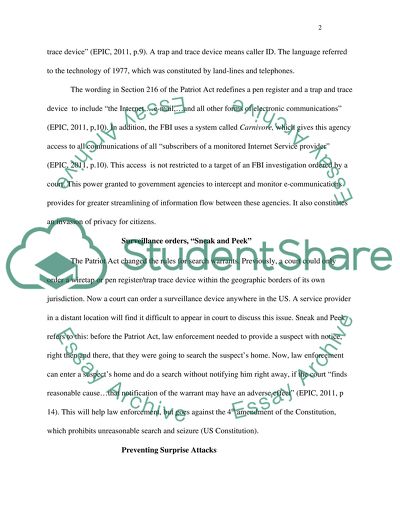Cite this document
(“The Patriot Act: Security vs. Civil Liberties Research Paper”, n.d.)
Retrieved from https://studentshare.org/law/1418327-the-patriot-act-security-vs-civil-liberties
Retrieved from https://studentshare.org/law/1418327-the-patriot-act-security-vs-civil-liberties
(The Patriot Act: Security Vs. Civil Liberties Research Paper)
https://studentshare.org/law/1418327-the-patriot-act-security-vs-civil-liberties.
https://studentshare.org/law/1418327-the-patriot-act-security-vs-civil-liberties.
“The Patriot Act: Security Vs. Civil Liberties Research Paper”, n.d. https://studentshare.org/law/1418327-the-patriot-act-security-vs-civil-liberties.


